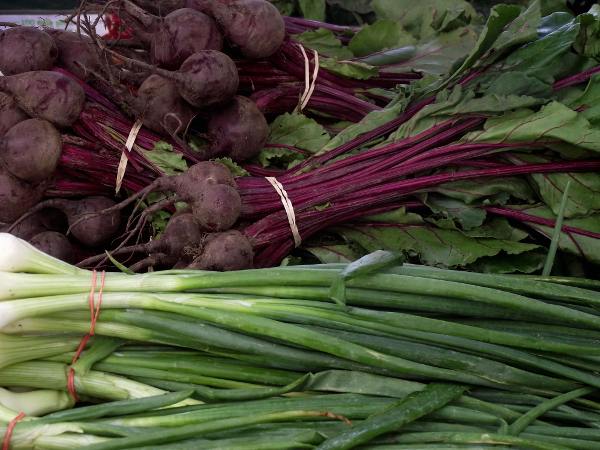A new study offers some dietary guidelines for cancer prevention that will be quite familiar to those who follow the alkaline diet. According to Dr. Neal Barnard—the author of the study, president of the nonprofit Physicians Committee for Responsible Medicine, and associate professor of medicine at George Washington University School of Medicine and Health Sciences--“Plant-based foods provide an antioxidant boost and help promote a healthy weight, reducing the risk for all types of cancer in the long run.”

Here are the six dietary guidelines for cancer prevention{1} offered by the study, along with associated findings from the Physician’s Committee for Responsible Medicine:
1. Limit or avoid dairy products. – “Consuming thirty-five grams of dairy protein each day, the equivalent of one large cup of cottage cheese, increases risk of prostate cancer by 32 percent. Drinking two glasses of milk each day increases risk of prostate cancer by 60 percent.”
2. Limit or avoid alcohol. – “One drink per week increases risk of mouth, pharynx, and larynx cancers by 24 percent. Two to three drinks per day increase risk of colorectal cancer by 21 percent.”
3. Avoid red and processed meats. – “Each 50-gram daily serving of processed meat, equivalent to two slices of bacon or one sausage link, increases risk of colorectal cancer by 21 percent. Each 120-gram daily serving of red meat, equivalent to a small steak, increases risk of colorectal cancer by 28 percent.”
4. Avoid grilled, fried, and broiled meats. – “Four types of heterocyclic amines (HCAs) are associated with cancer of the colon and rectum. HCAs form from creatine and amino acids in cooked skeletal muscle, increasing with higher cooking times and higher temperatures. When ingested, HCAs can disrupt DNA synthesis.”
5. Consume soy products. – “Evidence from Asian and Western countries shows that soy products are associated with reduced cancer risk. Chinese women who consume more than 11.3 grams of soy protein, equivalent to half a cup of cooked soybeans, each day during adolescence have a 43 percent reduced risk of premenopausal breast cancer, compared with women who consume 1.7 grams. Research in Shanghai shows that women with breast cancer who consume 11 grams of soy protein each day can reduce mortality and risk of recurrence by about 30 percent. U.S. populations show similar findings: the higher the isoflavone intake from soy products, the less risk of mortality and recurrence in women with breast cancer.”
6. Emphasize fruits and vegetables. – “Fruits and vegetables, especially leafy greens, help reduce overall cancer risk. A high intake of cruciferous vegetables, such as broccoli, kale, and cabbage, is associated with an 18 percent reduced risk of colorectal cancer and reduced risk of lung and stomach cancers. Women who consume the most carotenoid-rich vegetables, such as carrots and sweet potatoes, lower their risk of breast cancer by 19 percent. Overall, women who consume the highest quantities of any kind of fruit or vegetable reduce breast cancer risk by 11 percent. A high intake of tomato products has been shown to reduce risk of gastric cancer by 27 percent. Garlic and other allium vegetables, such as onions, significantly reduce risk for gastric cancer, while a Western diet (high amounts of meat and fat with minimal amounts of fruits and vegetables) doubles the risk. […] Some components in soybeans, green tea, turmeric, grapes, tomatoes, and other plant foods have the ability to regulate apoptosis (a natural process for destroying unhealthy cells), an important pathway for cancer prevention.”
As you can see, a person following the alkaline diet can easily meet the cancer-prevention recommendations of this study. From the statistics above, it would seem that the alkaline diet could also be called the “Cancer Prevention Diet!”
{1} Source: PCRM.org
Oh! I wasn’t aware about the fact that even dairy products can be a reason for cancer. In fact, I considered them as a resource for betterment of health. I consume cheese more than any other dairy products, and all I knew about its side-effect was that it can make me fat! And that’s all to it. But cancer? Thanks for opening my eyes.
I too had no idea how dangerous diary products can be. I knew that milk especially is a bad thing to consume, as it contains calcium levels that are too high for humans and meant for calves. What I didn’t know was how greater your chance of contracting cancer is as a result of consuming milk. I may consider an alternative next time I have a morning coffee.